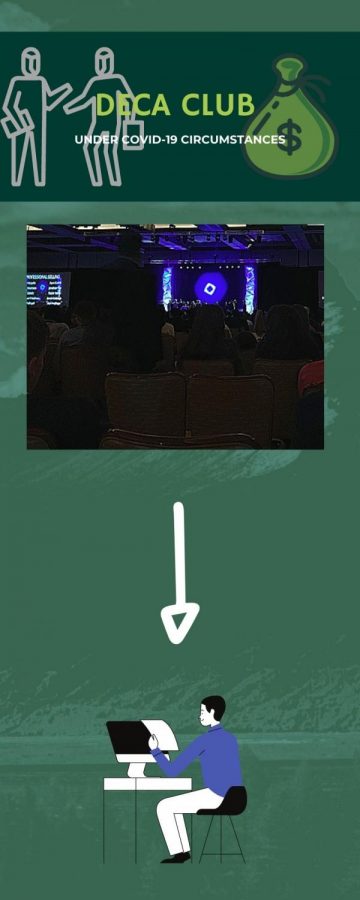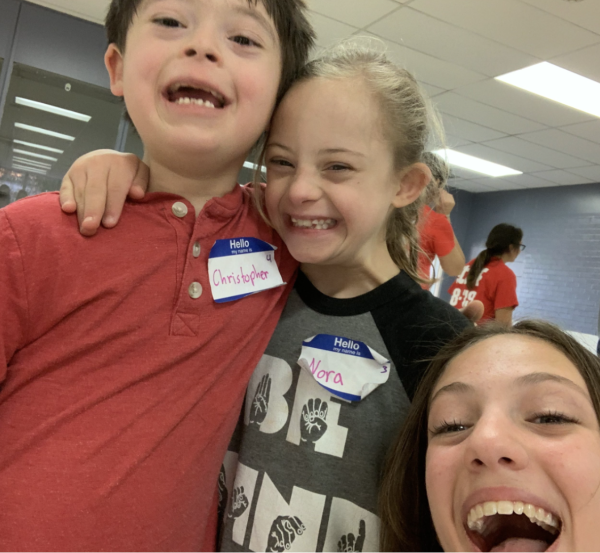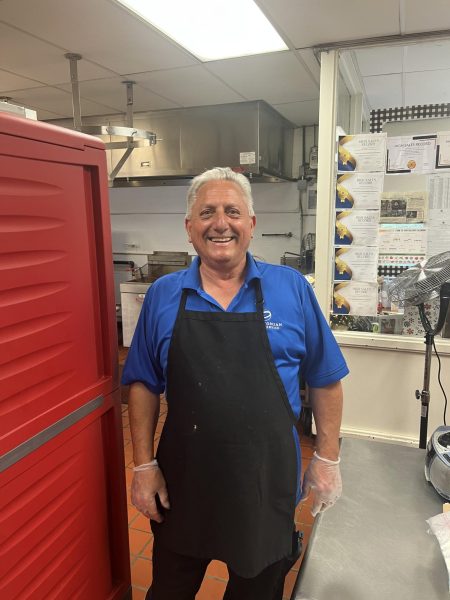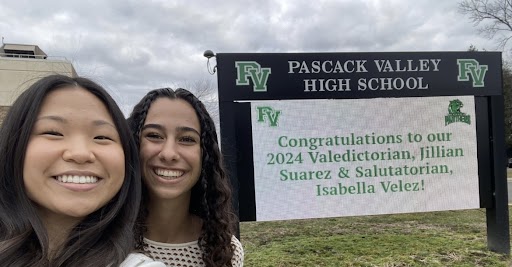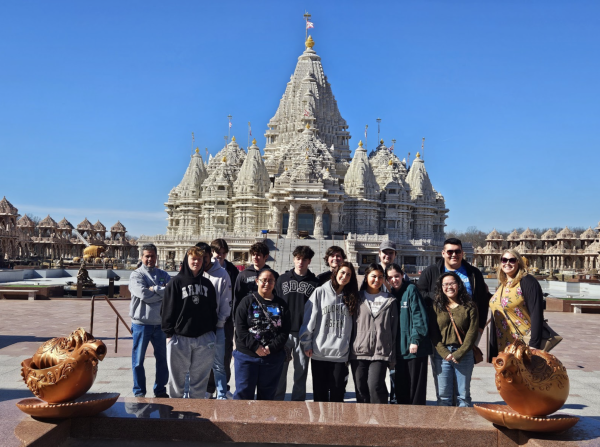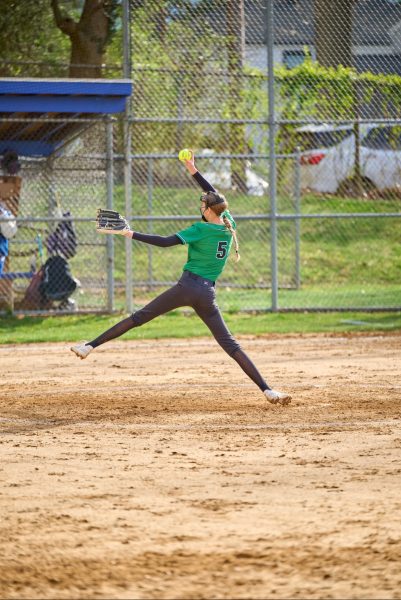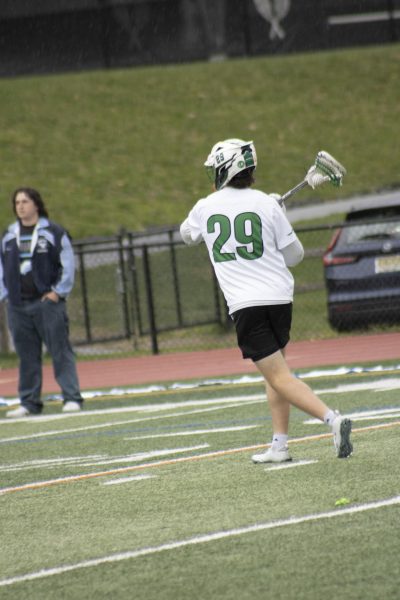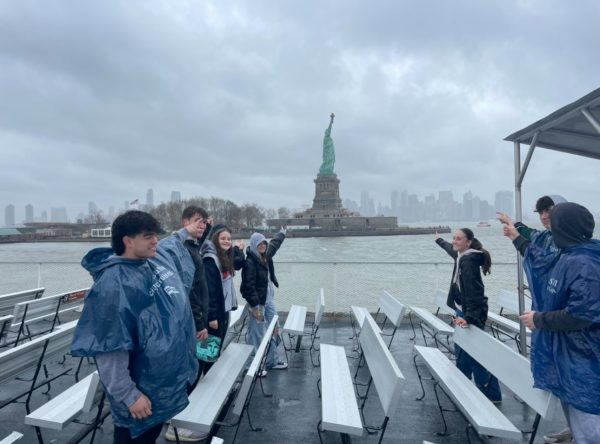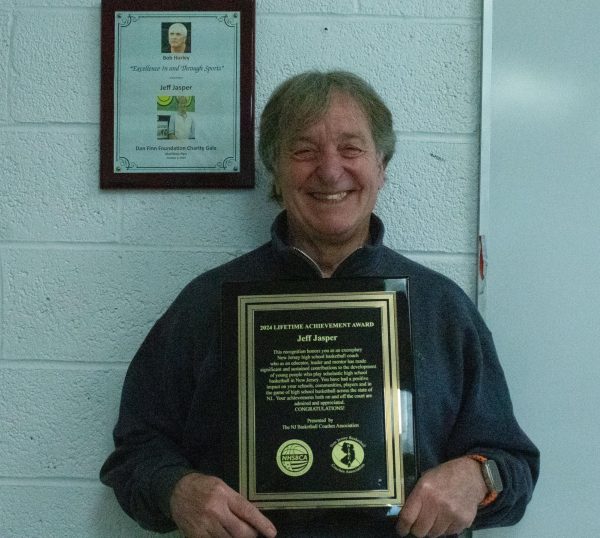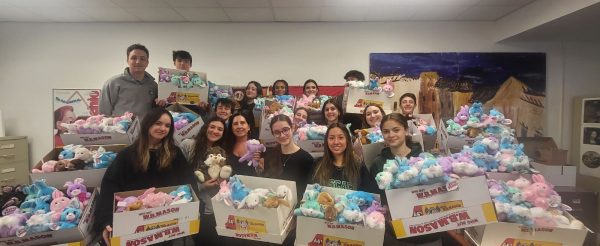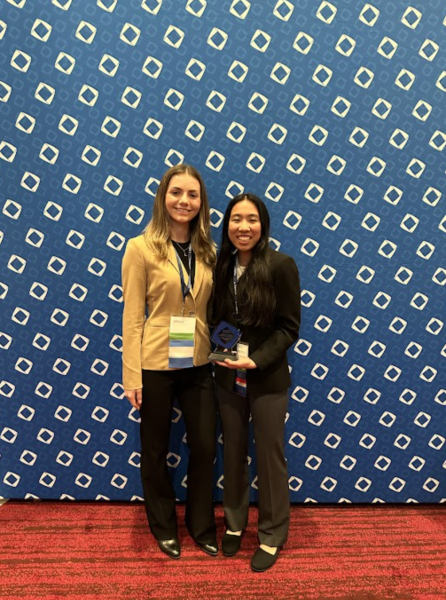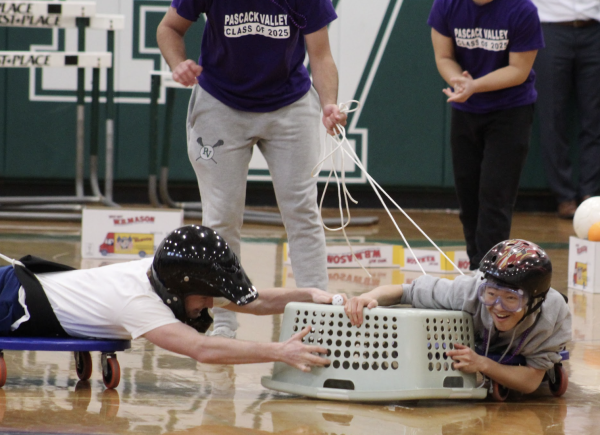DECA overcomes COVID-19 related obstacles
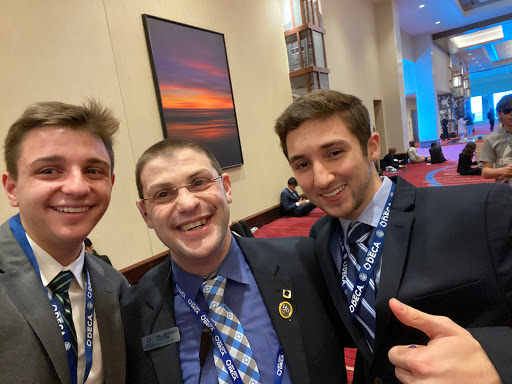
PV seniors Anakin Rybacki and Thomas DeWitt with NJ DECA State Advisor Jeffrey Victor at one of last year’s in-person DECA events. This year, students could not attend in-person events due to COVID-19, and all events were all held virtually.
From traveling to Atlantic City to Zoom calls in living rooms, the DECA club has had to adapt to new circumstances brought about by COVID-19.
DECA is a club in which high school students learn to become educated and responsible in entrepreneurship, business, marketing, and finance. In addition, participants have the opportunity to attend competitions and events involved with local businesses. Here at PV, DECA is run by Matthew Schulien and Jonathan Rose.
“The biggest challenge this year would most likely be having students feel more involved because everything [has been] online,” Schulien said. “[There were] a lot of challenges with meeting the students, getting them comfortable, [and] feeling like they’re in the club.”
According to Schulien, being virtual strips away face-to-face and sincere connections that would exist otherwise. On the contrary, being fully virtual has not been completely detrimental to members of DECA – in fact, the club plans to implement some current tactics even after the pandemic.
“Using Google Meet and recording a meeting would be a lot more beneficial moving forward for students who couldn’t make it or have more questions,” Schulien said.
PV senior Thomas DeWitt has been a member of DECA since his freshman year. He has been lucky enough to experience DECA prior to COVID-19; however, new members have not been as fortunate.
“The whole concept behind DECA, why people enjoy it, is because you have in-person experiences,” DeWitt said. “A lot of the events are roleplay events where you wear a suit and you meet people – you act like you’re in business. That’s taken away when you’re doing it virtually.”
DeWitt emphasized the impact of removing in-person events, as well as the loss of social interaction between members of the club.
“In DECA there’s a really diverse student population represented,” DeWitt said. “It’s not [just] a certain group who does DECA, so there’s that social aspect that was taken away too.”
DECA is well known for its large events, on a regional, state, and national level. At these events, members get to participate in mock business scenarios.
Instead of traveling to Atlantic City or Ramapo College, DECA events were held virtually and done within the homes of members. Student performances were not traditionally assessed and the evaluations lessened the chances of members advancing in the competitions.
“This year was really test-oriented,” DeWitt said. “Typically your score is based on a test and performance but for the regional competition, there was none of that. There was no face-to-face [and] no [recorded evaluated submission], you just took a test that determined if you moved on to states. For states, we had to record a video and send that in and they watched it at a later time. For nationals, which are coming up, I’m pretty sure that’s going to be a live Google Meet.”
Both Schulien and DeWitt recognize that not having in-person interactions, whether it be for an event or just a regular club meeting, has been a significant change. Overall, COVID-19 has hurt the club and caused members to miss out on the true experience of DECA.
However, senior Anakin Rybacki expects the club to rebound next year.
“If things are normal next year I would encourage whoever to join the club, we definitely need more people in it,” Rybacki said.
